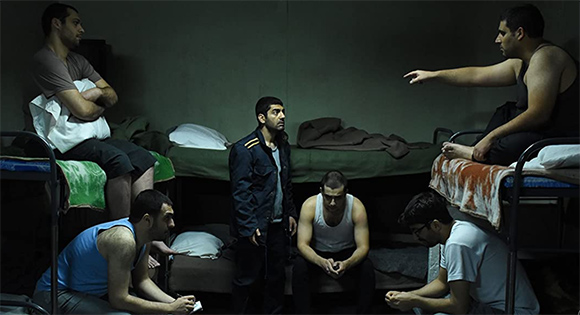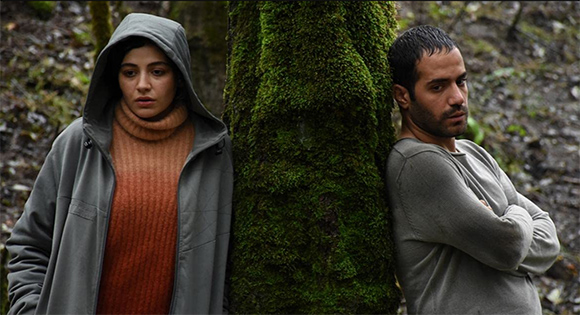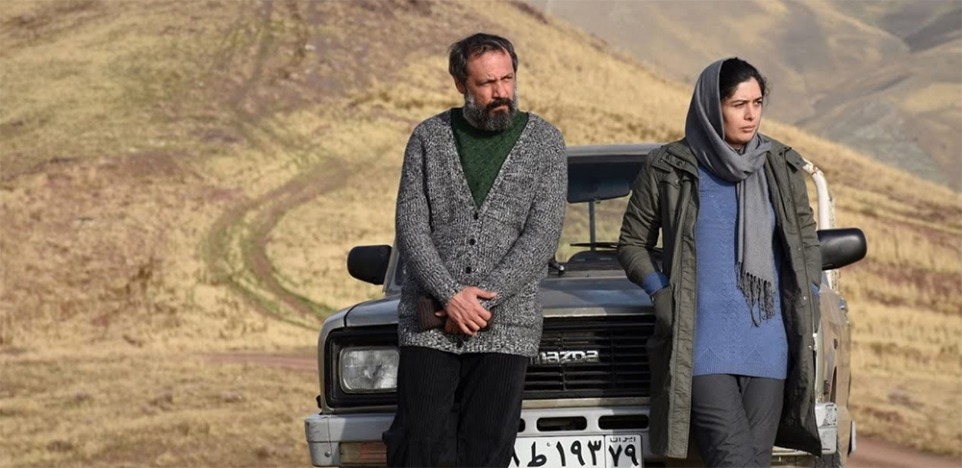The four short films that comprise Mohammad Rasoulof’s anthology There Is No Evil are all horror stories, just without the jump scares and supernatural elements to which audiences have become accustomed. In fact, it’s the menacing mundanity that threads through each of these quiet tales that gives the film its most provocative power. As it digs beneath the surface of Iran’s approach to capital punishment, filmgoers will find themselves challenged to examine their own acceptance of implacable institutions that not only kill individual bodies but threaten to slowly kill our collective spirit.
Real life horror grounds and surrounds these fictional snapshots. In fact, Rasoulof had to film There Is No Evil clandestinely and smuggle it out of his home country, sending it on to win the top prize at the 2020 Berlin International Film Festival without him in attendance. This brave artist is no stranger to controversy, his most famous film being Manuscripts Don’t Burn, a searing indictment of the notorious “chain murders” that swept through Iran in the 1990s, threatening writers, intellectuals, dissidents, and activists who dared to speak out against the brutality of the regime that came in to power following the 1979 Iranian Revolution. There Is No Evil acts as a sort of melancholy follow-up to its explosive predecessor, shedding light on a society in which state-sanctioned executions still happen, only now more often in the shadows, surrounded by a communally calm resignation.

Rasoulof could have gone more blatantly polemical with his attack. Iran is well-known for its executions occurring often before any kind of fair trial and the director’s anger against the Iranian government is certainly clear through every measured moment of this collection. But he has opted to leave more questions than answers, more haunting impressions than harrowing images. The result gives four distinct glimpses into the lives of men who have either refused to participate or settled into their place in this violent cycle, each a different subversion of expectations and genre.
Though each individual story works on its own, together they form an arc that moves from shock to suspense to grief and, finally, to a sort of tentative hope. The first part, titled “There Is No Evil,” sets the scene for Rasoulof’s open-ended and non-judgmental approach. Hashment (Ehsan Mirhosseini), a husband and father of few words, is tracked through his daily routine of leaving work, driving his wife and daughter on errands, eating dinner, going to sleep, until his morning alarm goes off and viewers follow him back to work and see exactly how he supports this life. This chilling final moment sets an inescapably tense tone for all that follows.
Next, in “She Said, ‘You Can Do It’,” young Pouya (Kaveh Ahangar), having just begun his mandatory two years of military service, is tasked with executing a prisoner and makes a surprising and ultimately thrilling decision.

With “Birthday,” Rasoulef uses soldier Javad’s (Mohammad Valizadegan) desire to attain leave to celebrate with his love Nana (Mahtab Servati) to explore the questionable compromises involved in using inhumane systems to one’s advantage.
Finally, in “Kiss Me,” Bahram (Mohammad Seddighimehr) and his wife Zaman (Jilla Shahi) are visited by Darya (Baran Rasoulof) at their home in the boondocks. Secrets are revealed as to why Bahram lives such a secluded life and the figure of a fox provides a profound commentary on our willingness to harm.
The Persian title for There Is No Evil is Sheytân vojūd nadârad, which actually translates to “Satan Doesn’t Exist,” a much more meaningfully evocative title for Rasoulef’s relentlessly earthly exposé. Each of the film’s parts is populated by richly detailed characterizations that are deeply, empathetically human. There is no need for otherworldly threats when this world contains such everyday horror.
Every facet of lived experience is not only represented but acknowledged here, from those who see no way out, to those who seek no way out, to those who cannot help but risk their lives to sear a way out. It all adds up to a fiery cry for justice that also appreciates that when evil has become so banal, the journey back to compassion can be complicated.
